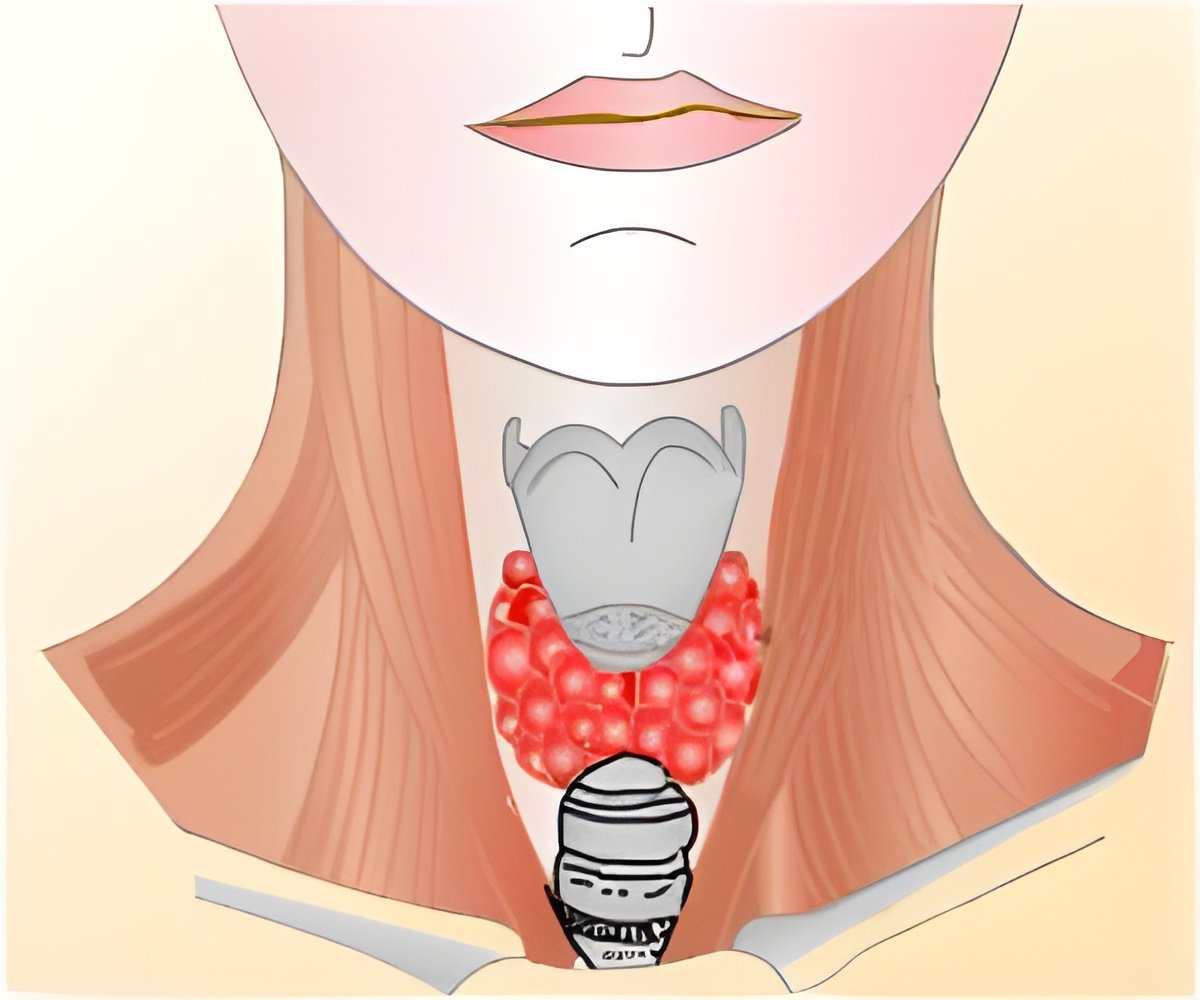The experimental anticancer drug lenvatinib may achieve at least a partial response in thyroid, endometrial, renal cancers and melanoma, phase I clinical studies have indicated.

Douglas Ball, MD, of Johns Hopkins University working with an international team of researchers tested the effectiveness of lenvatinib (being developed by Eisai Inc, Woodcliff Lake N.J.) over a 16-month period in patients with advanced, progressive differentiated thyroid cancer (DTC) unresponsive to conventional radioiodine therapy. A partial response-characterized by tumor shrinkage and progression-free survival-was observed in 45%-50% of the 58 patients enrolled in the study.
Genetic analysis of the tumor cells identified several mutations that were significantly associated with greater tumor shrinkage and delay of disease progression. Measurements of biochemical markers in patient blood samples also pointed to specific factors linked to the amount of tumor shrinkage following lenvatinib treatment. The researchers propose that these genetic mutations and serum profiles might be useful in identifying patients deriving the greatest benefit from lenvatinib treatment.
The team of researchers contributing to this study is from Eisai Inc., Johns Hopkins University School of Medicine (Baltimore, MD), University of Texas M.D. Anderson Cancer Center (Houston, TX), Centrum Onkologii Instytut of Gliwice (Poland), Fondazione IRCCS Istituto Nazionale del Tumor (Milan, Italy), Azienda Ospedialiera Universitaria Senese (Siena, Italy), Seattle Cancer Care Alliance (Seattle, WA), Royal North Shore Hospital (Leonards, New South Wales, Australia), H. Lee Moffitt Cancer Center (Tampa, FL), Ohio State University School of Medicine (Columbus, OH), University of Arkansas (Little Rock, AR), The Royal Brisbane and Women''s Hospital (Herston, Queensland, Australia), Royal Marsden Hospital (Sutton, UK), and Azienda Ospedaliero Universitaria Pisana (Pisa, Italy) and Institut Gustave Roussy, Villejuif, France.
About the ATA Annual Meeting
The 81st Annual Meeting of the American Thyroid Association will be held October 26-30, 2011 at the Renaissance Esmeralda Resort & Spa in Indian Wells (near Palm Springs), California. This four day creative and innovative scientific program, chaired by Drs. Anthony Hollenberg and Martha Zeiger, has carefully balanced clinical and basic science sessions on the latest advances in thyroidology. The ATA meeting is designed to offer continuing education for endocrinologists, internists, surgeons, basic scientists, nuclear medicine scientists, pathologists, endocrine fellows and nurses, physician assistants and other health care professionals. Visit www.thyroid.org for more information.
About the ATA
The American Thyroid Association (ATA) is the leading worldwide organization dedicated to the advancement, understanding, prevention, diagnosis and treatment of thyroid disorders and thyroid cancer. ATA is an international individual membership organization with over 1,400 members from 43 countries around the world. Celebrating its 88th anniversary, ATA delivers its mission through several key endeavors: the publication of highly regarded monthly journals, THYROID, Clinical Thyroidology and Clinical Thyroidology for Patients; annual scientific meetings; biennial clinical and research symposia; research grant programs for young investigators, support of online professional, public and patient educational programs; and the development of guidelines for clinical management of thyroid disease. Visit www.thyroid.org for more information.
Advertisement
Source-Newswise















